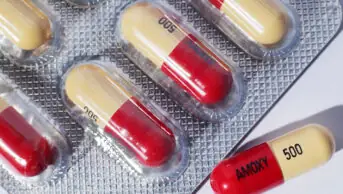
Shutterstock.com
Children and young people with peanut allergy may be able to protect themselves from accidental ingestion by building up their tolerance to peanut protein over time, a study published in the New England Journal of Medicine (18 November 2018) has shown[1]
.
The phase III trial, the results of which were presented at the American College of Allergy, Asthma and Immunology (ACAAI) annual scientific meeting, included 551 participants aged 4–55 years, all of whom were highly allergic to peanuts. The participants were randomly assigned in a 3:1 ratio to receive either AR101 (a peanut-derived biologic drug with a characterised protein profile) or placebo.
The AR101 group received increasing amounts of peanut protein until they reached the “maintenance dose” of 300mg, equivalent to one peanut a day, on which they then remained for approximately 24 weeks.
The researchers then tested to see whether the participants could ingest a challenge dose of 600mg or more — the equivalent of approximately two whole peanut kernels — without dose-limiting symptoms.
Overall, 67% of the participants aged 4–17 years in the AR101 group could tolerate a single dose of at least 600mg of peanut protein at the end of the study, compared with 4% in the placebo group, despite the fact that none of them were able to tolerate more than 30mg of peanut protein prior to treatment.
“Reactions from the oral challenges at the end of the study were much milder than prior to treatment,” said Stephen Tilles, study co-author and former president of the ACAAI.
“On average, the participants were able to tolerate a 100-fold higher dose of peanut at the end of the study than they did at the beginning. In addition, the symptoms caused by the 100-fold higher dose at the end of study were milder than the symptoms on the lower dose at the beginning of the study.”
However, no significant effect was found in participants aged 18–55 years.
Adverse events were common in the two trial groups. But adverse events that were considered by the investigators to be serious or severe occurred in fewer than 6% of the participants in the AR101 group and in fewer than 2% of those in the placebo group.
“This is not a quick fix, and it doesn’t mean people with peanut allergy will be able to eat peanuts whenever they want,” said Jay Lieberman, co-author and vice chair of the ACAAI Food Allergy Committee.
“But it is definitely a breakthrough. The hope would be to have a treatment available in the second half of 2019. If that happens, people who receive and are able to tolerate this treatment should be protected from accidental exposures.”
If this treatment is approved by the FDA, it will be available by prescription, and people with a peanut allergy will need to take it continuously to stay protected against accidental consumption, the researchers said.
References
[1] The PALISADE Group of Clinical Investigators. AR101 Oral Immunotherapy for Peanut Allergy. NEJM; 2018. doi: 10.1056/NEJMoa1812856


